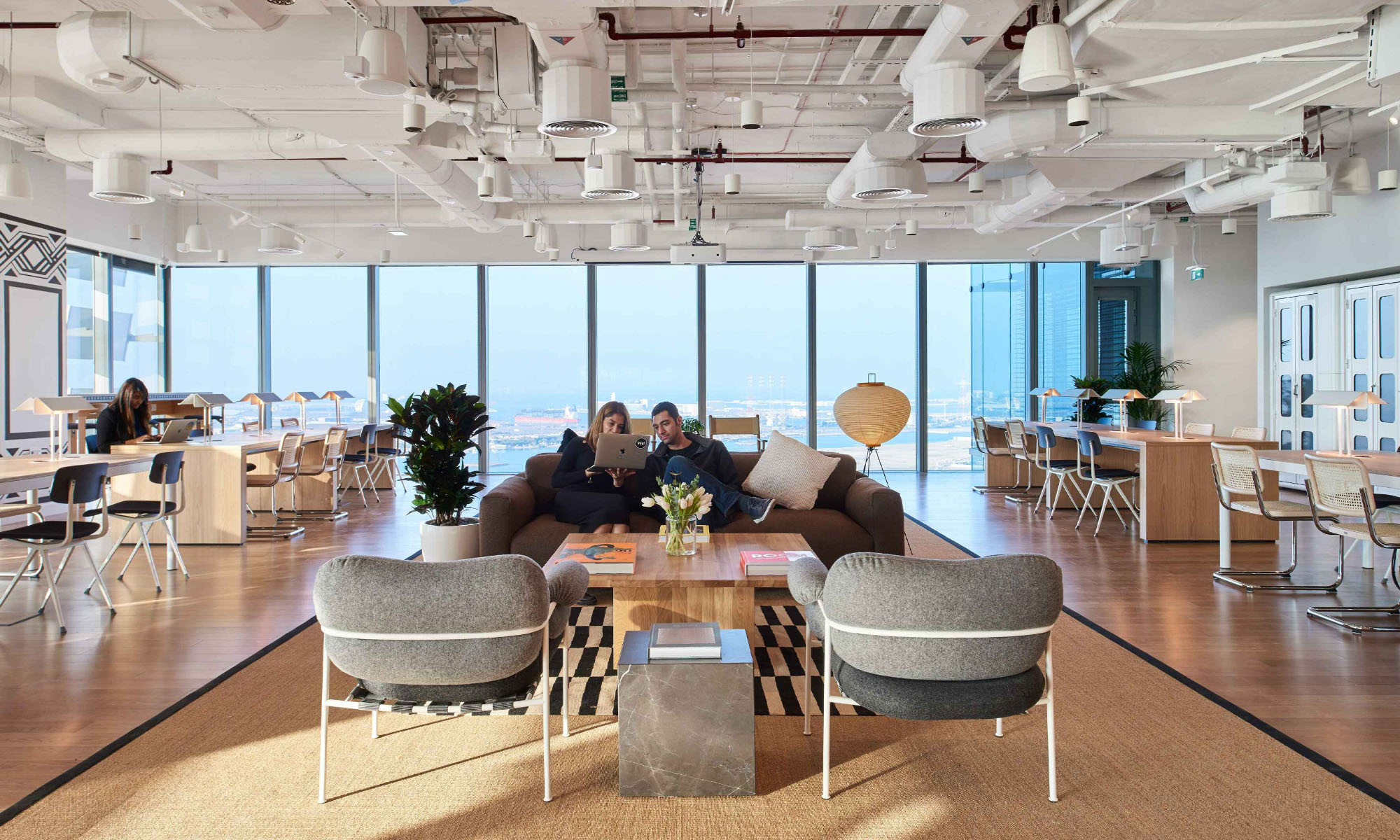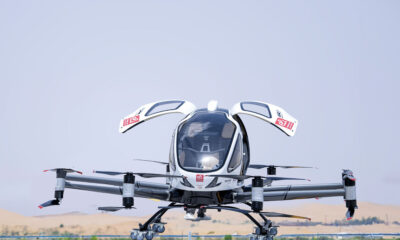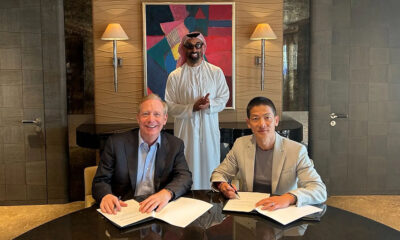News
Hub71 Accepts 16 New Tech Startups To Join Its Community
The selected startups specialize in industries including fintech, healthtech, foodtech, cleantech, and logistics.

Launched back in 2019 as a means of bringing together investors, organizations, and strategic partners, the tech ecosystem known as Hub71 has recently accepted 16 new startups into its fold from the USA, UK, Italy, and more to further the progress of innovation and entrepreneurship in Abu Dhabi. The recent news comes as the company plans to expand its operational reach, scaling into other markets along with the UAE.
Over the next two years, the new startup additions will join Hub71’s incentive program that will include large-scale funding, access to a rich ecosystem of academic and corporate investors, and potential government partners. The latest round of financing at Hub71 has raised $467 million overall and will help drive progress in diverse industries, including fintech, healthtech, cleantech, edtech, foodtech, and logistics.
“Our value-driven programs continue to attract high-tech startups to Abu Dhabi that are driving transformation within key sectors of the economy. As partners to over 170 startups in our community, we always strive to connect founders to our global network of blue-chip corporations, government bodies, and investors. With our ability to unlock real growth opportunities for founders, we expect this new cohort to gain tremendous traction over the next few months within the vibrant tech ecosystem that Abu Dhabi offers,” says Badr Al-Olama, Acting CEO of Hub71.
Also Read: Disney+ Releases New MENA Content In September
Hub71’s startups include the Green Future Project, a platform supporting climate projects that track and trace environmental impact, Amwal, a platform enabling people to pay or send money based on their phone number, and Abhi, a fintech startup that lets salaried employees draw on their wages when needed.
In the first half of 2022, Hub71 helped startups land deals worth $700 million in revenues through the ecosystem’s corporate partners. Hub71 has also helped create around 1000 jobs.
News
Mamo Completes $3.4M Funding Round To Enhance Fintech Services
The startup will use the influx of cash to expand into Saudi Arabia and across the wider GCC while improving its product offering.

UAE-based fintech Mamo has announced the completion of a $3.4 million funding round that will help the startup extend its market presence and improve its product offering. Investors included 4DX Ventures, the Dubai Future District Fund and Cyfr Capital.
Mamo’s platform offers “payment collection, corporate cards and expense management” to help small and medium-sized businesses consolidate and streamline their operations. With the latest influx of capital, Mamo will further develop its comprehensive suite of services and begin testing its product lines in Saudi Arabia, further extending its footprint across the GCC.
Imad Gharazeddine, co-founder and CEO of Mamo, stated: “We’ve been in the market for a while now and are incredibly proud of what our team has achieved. The holistic and expansive nature of our product offering has helped us continue to grow sustainably. This additional funding will allow us to reach our medium-term goals even faster. The support from new and existing investors is a testament to our strong expertise and the ability to deliver on our customer promise”.
Daniel Marlo, General Partner of lead investor 4DX Ventures, added: “We have immense trust in Imad’s vision, leadership and Mamo’s innovative approach to provide a user-friendly and comprehensive financial solution for SMEs that makes financial management more accessible and efficient. We are proud to partner with them and support their mission”.
Also Read: A Guide To Digital Payment Methods In The Middle East
Amer Fatayer, Managing Director of Dubai Future District Fund’s investment team, also commented: “Mamo’s localized product lines serve as an infrastructure for SME payments and spend management in UAE, a segment that is underserved by the country’s current banking infrastructure. The team has taken a product-first approach to consolidating SMEs’ financial journeys and building a fintech solution deeply embedded in a business’s core operations”.
To date, Mamo has raised around $13 million in investment funding and now boasts a team of 30 people. The company’s intuitive financial services platform has allowed over 1,000 businesses to consolidate their financial operations and significantly reduce payment fees.
-

 News4 weeks ago
News4 weeks agoAmazon Prime Day 2024: Get Ready For 6 Days Of Amazing Deals
-

 News4 weeks ago
News4 weeks agoSamsung Unpacked 2024: What To Expect From The July 10 Event
-

 News3 weeks ago
News3 weeks agoCoursera Report Shows Surge In UAE Interest In AI Upskilling
-

 News4 weeks ago
News4 weeks agoMeet Dubai’s Groundbreaking Smart Robot Delivery Assistant
















